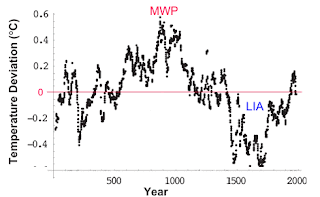Frank Furedi has this excellent review of the newly published Green Capitalism by James Heartfield.
Noting that environmentalism has emerged over the past 50 years to become the pre-dominant Western sensibility, Furedi notes that:
- ...environmentalism dominates the cultural imagination, directly shapes contemporary lifestyle, and has emerged as a powerful moralising project. To be green is to be virtuous, responsible, if not yet holy. Public discourse is underpinned by green values, and for politicians ‘helping to save the planet’ has become a point-scoring apple-pie issue.
- ...green protest against consumerism doesn’t represent the rejection of consumption, but rather its moralisation. From a sociological perspective, green consumption can be seen as a new form of conspicuous consumption. This is consumption for effect.
- ...green shopping habits are acts of social demarcation. Through adopting the identity of an ethical shopper, someone who cares and who reflects on what they purchase, green consumers are self-consciously marking themselves off from their moral, and incidentally their social, inferiors.
- Under the banner of green capitalism, more and more features of economic life are being reorganised and restructured. Everything from the emission of carbon to the air we breathe to the water we drink has been transformed into a commodity.
I like Furedi's writing as it always causes me to reflect and consider meanings. In this instance, he has Heartfield's thesis to work with and the result is an article that adds both insight and an alternative interpretation to the material Heartfield discusses.
All things are not simple and transparent. Even studies that seek to provide clarity may instead provide insight that complicates, rather than simplifies, our understanding.
Real life is nuanced, full of subtlety and contradictions. Perhaps that is the source of its vibrancy and resiliency: dare I say, its sustainability.

